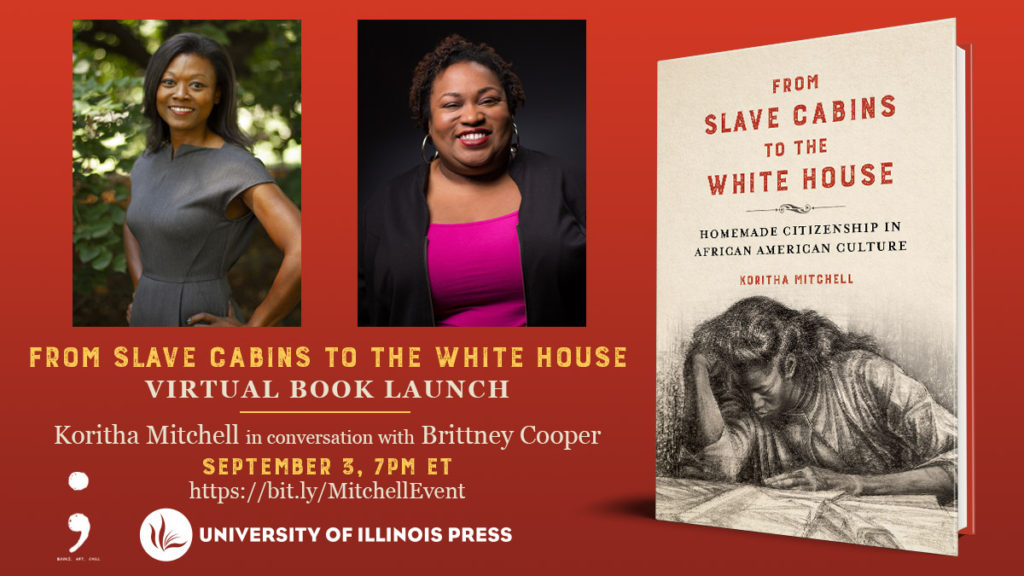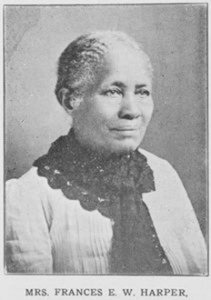What an honor to join sister scholars of the Association of Black Women Historians to process this ongoing moment!
Speaker, Author, Cultural Critic
What an honor to join sister scholars of the Association of Black Women Historians to process this ongoing moment!
As we’ve watched Donald Trump disregard the 300,000+ Americans who have died from COVID but still get support in trying to steal the election, brash villainy can make white mediocrity seem like a non-issue. However, white mediocrity has always been extremely dangerous. Trump became president because ordinary white people held themselves (and each other) to LOW standards, thereby failing to mobilize to stop him as soon as he called Mexicans “rapists.”
I’ve been highlighting the danger of white mediocrity for years, including here and here and here. This clarity puts me in conversation with people like Michael Harriot and Ijeoma Oluo, who just published Mediocre. Harriot and I caught up on camera around these issues. It was an honor, but the clarity is also important.

Watch the book launch! It was a VERY GOOD TIME!!! And please share widely! https://youtu.be/R_qkBy5jmuw

I took this opportunity to read a bit from my book’s Coda, “From Mom-in-Chief to Predator-in-Chief.” The recording is less than 15 minutes. Please enjoy and share widely! https://youtu.be/T22qBlt_fYs?t=9569

Ask A Bishop series “at” my alma mater, Ohio Wesleyan University, is giving me a chance to share what I have learned over the years from studying violence. Its goals are strikingly consistent.
Free and open to the public, so join me! Register here.

Imagine Otherwise is a great podcast I listen to regularly, so it is an honor to be a guest! And its host, Cathy Hannabach, founded Ideas on Fire, a remarkable company offering an array of editing services and professional development programming. I am pleased to have used their company for portions of From Slave Cabins to the White House.
In this interview, Cathy’s questions led me to share in some unexpected ways. I’m also happy to have had an opportunity to acknowledge the influence of Evie Shockley and Alicia Garza on my thinking. Listen and share widely! Full Episode

When I imagined the perfect book launch, this was my vision! I’ll be in conversation with Brittney Cooper, whose immeasurable contributions have inspired me for many years, and we are partnering with Semicolon, the Black woman-owned bookstore and art gallery in Chicago. I could not be happier about how From Slave Cabins to the White House will make its debut!
We will congregate via ZOOM on Thursday, September 3rd at 7pm Eastern time. It will be recorded and available later. To attend live and get all the updates, register at https://bit.ly/MitchellEvent
An official version of the letter below has been sent. Circulating a public version aligns with the mission of the Society of Senior Ford Fellows (SSFF). The organization takes a clear public stance oriented toward social justice, equity, and the advancement of intellectual rigor and democratic values in the United States and global society.
July 10, 2020
The Honorable Chad F. Wolf
Acting Secretary of Homeland Security
Office of the Executive Secretary
MS0525
Department of Homeland Security
2707 Martin Luther King Jr. Ave. SE
Washington, DC 20528-0525
Dear Acting Secretary Wolf:
The Society of Senior Ford Fellows (SSFF) would like to register its profound opposition to the Immigration and Customs Enforcement’s recent policy decision to revoke existing F-1 visas and deny applications for new F-1 visas to students who engage only in off-campus coursework during the coming year. The SSFF is a professional association formed by the more than 5000 prominent scholars in colleges, universities, and in the public and private sectors throughout the United States and globally who have received fellowships from the Ford Foundation.
This new policy is not consistent with widespread efforts by universities, colleges and other educational institutions to protect the health of students and staff in the midst of the Covid-19 pandemic. Many of these efforts involve reducing on-campus activities as much as possible—particularly for vulnerable students, staff and educators—so that required physical distancing and other infection reduction practices can be implemented.
This new policy would be extremely damaging to the US educational systems and catastrophic for many international students and their families. This policy will put thousands of students in the horrible position of having to choose between meeting the requirement to participate in on-campus activities, and protecting their health, as well as that of their families and communities.
Even more problematic is that many educational institutions are planning for 100% distance learning in the coming year to protect public health. This includes the second largest four-year university system in the country, the California State University, with almost a half million students. Thousands of students in this system alone would lose eligibility to continue their education because of this new policy. It would also devastate the very foundation of these institutions, by depriving them of the intellectual, cultural, ideological and economic diversity that has propelled US educational institutions to excellence and made them aspirational worldwide.
This new policy for F-1 visa holders and applicants is unnecessary, disturbing and harmful. It would have extremely damaging effects on the student bodies of US educational institutions at all levels. It would compromise public health. Furthermore, it would severely damage the US economy and its international reputation.
We strongly urge you to reverse this policy immediately, before it further harms our critically important international student population, and the educational institutions that are the core of our nation’s society and economy.
Sincerely,
Society of Senior Ford Fellows
Susan C. Antón, President
February 26, 2020
Office of the President Harvard University
Massachusetts Hall
Cambridge, MA 02138 USA
Dear President Bacow and Board of Governors:
The Society of Senior Ford Fellows (SSFF) would like to make known our concern and disappointment over the decision to deny tenure to Dr. Lorgia García Peña. Dr. García Peña is a well-regarded member of our ranks, having been awarded Ford Dissertation and Postdoctoral Fellowships in 2006 and 2015, respectively, for her interdisciplinary work that examines the complexity and importance of Afro-Dominicanidad via musical, literary, political, and historical narratives. We also are deeply concerned about what Harvard’s action may imply about the university’s commitment to Ethnic Studies as a discipline and for scholars and students of color, to embracing new disciplines, fostering underrepresented professors and students, or enabling the development of innovative pedagogy. We are concerned that this matter may hamper Harvard’s ability to be fully engaged in efforts to change the academy for the better by making it truly reflective of current scholarship, demographics, or 21st century approaches to teaching. Given this unfortunate situation, we must join with various colleagues in the nation and abroad to ask that Harvard initiate a transparent and ethical release of information outlining the reasons for Dr. García Peña’s tenure denial.
Dr. García Peña’s scholarship has national and international acclaim. She has been awarded numerous accolades by important scholarly organizations for her publications and was named Harvard’s Professor of the Year in 2015. The following year she received the Roslyn Abramson Award for excellence in Undergraduate Teaching and Graduate Mentoring, and the Harvard Graduating Class of 2017 recognized her as Professor of Year. In addition to her distinction in research and teaching, Dr. García Peña has served on numerous search committees for tenure-track faculty positions and engaged in the hiring process for lecturers in various departments, as well as having been a principal member of the search committee for the 2019-2020 Warren Center Faculty Fellowships. This tenure decision is baffling, given her transformational work in American Studies, Ethnic Studies, and Latinx Studies, along with her prolific and high-quality record of publication and her status as a beloved teacher.
The SSFF considers Dr. García Peña a vital, important, and venerated member of our community. If the denial of tenure has not been entirely fair, as it appears, then this individual case would be tantamount to an affront against each one of us and puts us on guard. If an exceptional scholar like her can be denied tenure, then it seems that other scholars of color could meet the same fate at Harvard. We call on Harvard to rectify this situation and, in the process, restore our faith in your institution so that when we utter its motto, veritas, we know that indeed the word is made manifest there and in the academy as a whole.
Sincerely,
On Behalf of the Society of Senior Ford Fellows Board
Susan C. Antón, President
susan.anton@nyu.edu
 Frances Ellen Watkins Harper (1825-1911) was one of the most important black woman activist-authors of the nineteenth century—easily as prominent as Frederick Douglass. When many rejected the notion that African Americans should be anything other than slaves and opposed the idea of women speaking in public, Watkins Harper was an antislavery lecturer appreciated by significant crowds and by colleagues such as Douglass, William Lloyd Garrison, William Still, Susan B. Anthony, and Elizabeth Cady Stanton. In the first six weeks of the fall of 1854, she traveled to 20 cities and gave at least 31 lectures. That same year, she published Poems on Miscellaneous Subjects, which sold more than 10,000 copies, was enlarged and reissued within 3 years, and enjoyed at least 20 reprintings in her lifetime. After having written three serialized novels, she released her most famous novel, Iola Leroy, when she was 67 years old, and it was reprinted four times in four years. How could such a powerful orator and prolific writer fade from American memory?
Frances Ellen Watkins Harper (1825-1911) was one of the most important black woman activist-authors of the nineteenth century—easily as prominent as Frederick Douglass. When many rejected the notion that African Americans should be anything other than slaves and opposed the idea of women speaking in public, Watkins Harper was an antislavery lecturer appreciated by significant crowds and by colleagues such as Douglass, William Lloyd Garrison, William Still, Susan B. Anthony, and Elizabeth Cady Stanton. In the first six weeks of the fall of 1854, she traveled to 20 cities and gave at least 31 lectures. That same year, she published Poems on Miscellaneous Subjects, which sold more than 10,000 copies, was enlarged and reissued within 3 years, and enjoyed at least 20 reprintings in her lifetime. After having written three serialized novels, she released her most famous novel, Iola Leroy, when she was 67 years old, and it was reprinted four times in four years. How could such a powerful orator and prolific writer fade from American memory?
It certainly is not because she did not work hard or failed to command respect from those exposed to her work. As a Unitarian who was also quite active in the AME church, she felt a tremendous duty to steer the United States toward greater justice. When her demanding travel schedule tested the limits of her health, she admitted to friends in letters how difficult it was, but she persisted! Meanwhile, she also seemed to anticipate the possible erasure of her labor as well as its likely causes. In an 1866 speech, she shared that, as soon as her husband died, authorities “swept the very milk-crocks and wash tubs from my hands,” depriving her of the means to support her children. She ended this story with, “I say, then, that justice is not fulfilled so long as woman is unequal before the law” (311). Thus, Harper understood that women could be denied the resources needed to work.
As important, Harper understood that even when women created a work life despite meager resources, the politics of recognition unjustly obscured their contributions. In an 1878 article titled “Colored Women of America,” she was unequivocal: “The women as a class are quite equal to the men in energy and executive ability. In fact I find by close observation, that the mothers are the levers which move in education. The men talk about it, especially about election time, if they want an office for self or their candidate, but the women work most for it” (315).
Harper’s public career was most active from the 1850s to the 1890s, an impressive 50 years. She was at the forefront of movements for abolition, public education, temperance, and voting rights. And she did this work through leadership positions within black women’s organizations, such as the National Association of Colored Women (NACW). At the same time, she was one of the most prominent black women in predominantly white organizations, such as the Woman’s Christian Temperance Union (WCTU)—despite the racism she faced.
In short, Harper’s life and work exemplify the tradition among black women to engage in justice-oriented activism not only while encountering hostility but also whether or not they receive the recognition that seem to flow to their black male and white woman colleagues.
Besides having spoken plainly about black women’s labor in speeches and essays, Harper made the pursuit of meaningful work a major theme in Iola Leroy so that her protagonist’s journey Is not dominated by the marriage proposals she received. Harper’s novel therefore imagined more space not only for black women’s labor but also for its recognition. Frances E. W. Harper understood the forces that might conspire to diminish her contributions, and she left evidence that she did not simply capitulate to those (admittedly quite powerful and enduring) forces.
The new Broadview edition of Iola Leroy honors this aspect of its author’s legacy… and so much more. For more details, please visit https://broadviewpress.com/product/iola-leroy/#tab-description